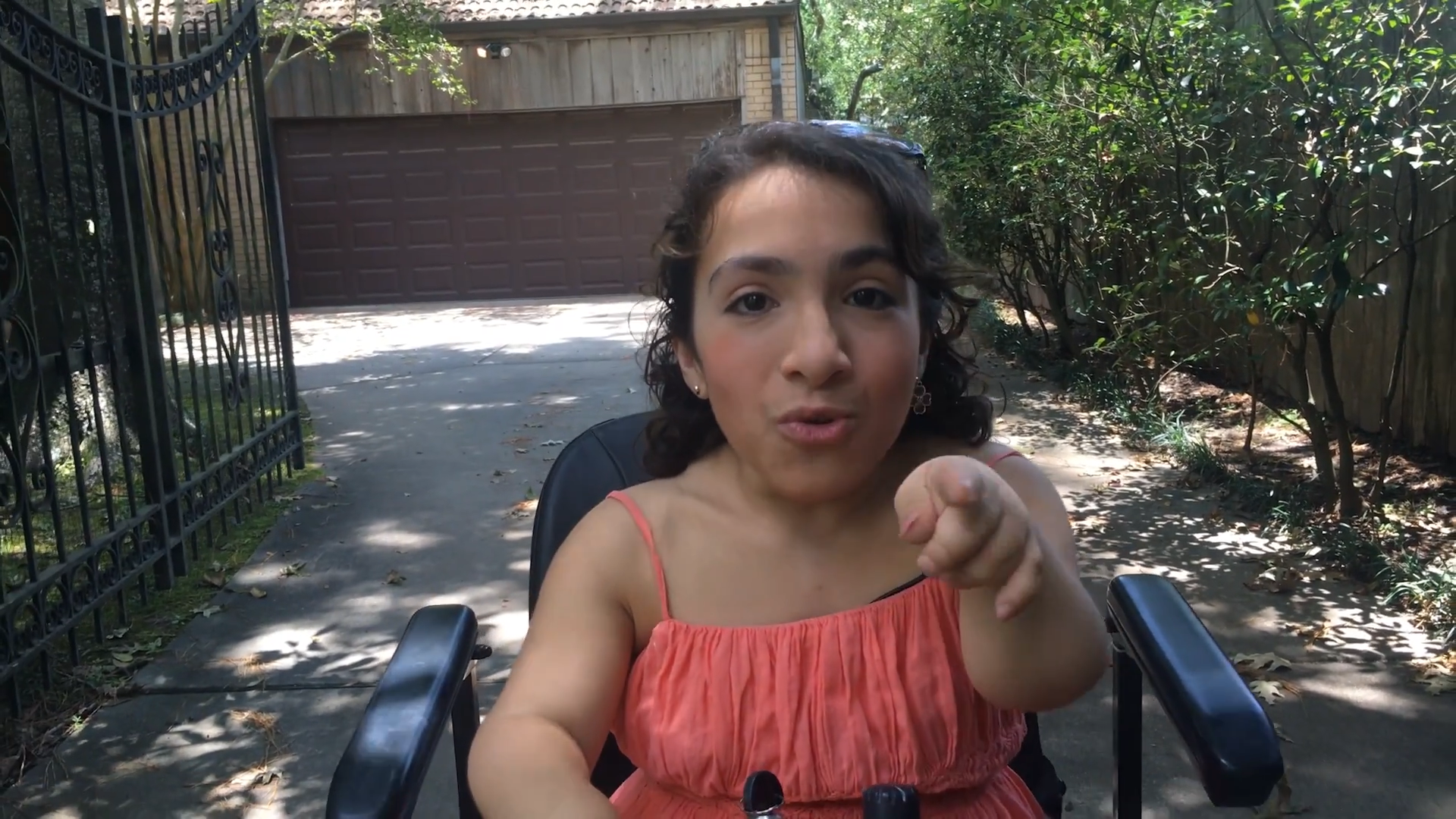Disability Advocacy Videos
A collection of videos I produced with Rooted in Rights
“Disability rights are human rights.”
Why advocacy is so important in my work?
Advocacy has always been a major part of my life, especially disability rights. Growing up with a disability, I always had to advocate for myself in order to get the rights I deserved at school or in public places. It was not until I started work at Rooted in Rights back in 2015 that I learned about video advocacy, and how videos can be a tool in order to make a difference and make a change in the world. During my time at Rooted in Rights, I learned about script writing, directing, filming, editing and motion graphics, and how to successfully create short 2-3 minute advocacy videos that could spark change. My work with video advocacy was the foundation to becoming a filmmaker, videographer, editor as well as designing for the disability rights movement.
I also lead the Storytellers Series at Rooted in Rights as the Storytellers Coordinator, where I took my videography skills and taught people with disabilities how to produce their own advocacy videos. I taught our Storytellers the pre-production and production process, including script writing, filming, interviewing, and hosting on camera. I was then in charge of editing and designing motion graphics for our Storyteller videos.
The video work I did in the disability community focused on telling the authentic stories of people with disabilities, and giving people with disabilities the opportunity to be empowered while telling their stories.
AWARDS: Susan M. Daniels Disability Mentoring Hall of Fame for the Storytellers Series.
#Crappy Curb Campaign - 2015
Do you know why curb cuts are so important for people with disabilities? They allow people with disabilities to get around a city independently and safely. Unfortunately, not many cities have curb cuts implemented nor are they accessible for people with disabilities. My team and I at Rooted in Rights took our cameras out in Seattle and documented where the “crappy curbs” were in the city and explained the importance of curb cuts. We asked the public to document their crappy curbs in their neighborhood using the hashtag, #CrappyCurb on social media in order to pressure their cities to implement curb cut fixes. This video campaign was associated with the Reynoldson v. City of Seattle lawsuit to get the City of Seattle to fix over thousands of curb cuts in the city. The lawsuit reached a settlement in July, 2017, where the city has to spend the next 18 years fixing and installing accessible curb cuts.
ROLES: I wrote the script, hosted this video, and filmed on my scooter with GoPros Heros.
EQUIPMENT: Canon DSLRs; GoPro Hero.
SOFTWARE: Final Cut Pro.
Little People Employment: A Little Job Advice from Bill & Jen - 2016
This video discusses the importance of not discriminating Little People when they are searching for employment. Unfortunately, many Little People are often discriminated by their short stature by employers, and as a result have a hard time finding a job. I went out and interviewed my friends from TLC’s The Little Couple, Jen Arnold and Bill Klein about their perspectives of finding a job as Little People themselves. This video was the first video produced for the Rooted in Rights Storytellers Series.
ROLES: I wrote the script for the video, and the director, videographer, and host of this video.
EQUIPMENT: Flip Ultra HD Camcorder, Canon Powershot Camera.
SOFTWARE: Adobe Premiere; Adobe After Effects.
Rooted in Rights Call to Action: Apply to be our next Storyteller! - 2017
Every year, Rooted in Rights asks people with disabilities from all over the world to apply for their Storytellers Series. As the Storytellers Coordinator, I was in charge of the Storytellers Series and recruiting people to apply. Here is one of our very first calls for recruiting people with disabilities for the 2017 season of the Storytellers Series.
ROLES: I was the script writer, director, host, and editor of this call to action video.
EQUIPMENT: iPad Pro with the app FiLMiC Pro; iOgrapher.
SOFTWARE: Adobe Premiere.
The Right to Your Graduation - 2018
This video is about the importance to have accessibility at one’s graduation. I had an incident where I was almost not able to attend my own graduation. This video I produced with the purpose to educate other students with disabilities how to advocate for themselves to be included in their graduation, as well as to promote their own graduation to be accessible. This video was part of the Rooted in Rights Storytellers Series.
ROLES: I wrote the script for the video, and was the director, producer, videographer, video editor, audio editor, host, and motion graphics designer.
EQUIPMENT: iPad Pro with the application FiLMiC Pro; iOgrapher.
SOFTWARE: Adobe Premiere; Adobe After Effects.






